Posted on: 09/08/2024
Some of our schools have already broken up for the summer; some abroad take their longer holiday at other times of the year but here in England, sun shining (finally!) many schools finish this Friday. Some lucky children will be going on holiday with their families - be that camping in Cornwall; Air b’n’bing in Avignon or even hotel-dwelling in Honduras, a change is (almost always) as good as a rest, right? We know that whilst some of the children (and teachers!) we work with will be very much looking forward to kicking back a bit and enjoying days of freedom from schedules and suspension of usual business that can come with the summer holidays, this won’t be the experience of all. In one school I used to teach in, way back when, we would routinely (and very sadly) see disclosures that necessitated child protection action near to or even on the last day of term. Without the routine, comfort and safety of school, the six-week break must feel like a very scary time for some children. Others don’t cope well with lack of routine and boredom and loneliness can beckon. But having the companionship that a good book provides can mean everything to children and so here is our August edit, filled with adventures of mind, body and soul and where there is literally something for everyone!
Grandma’s Magic Recipes: Stories and recipes for every season – Summer Sunshine by Ella Phillips and Camilla Sucre
(Simon and Schuster Children’s UK, 20th June 2024)
This delightful book- one of a series - is filled with the joys of growing food, cooking and ‘eating the sun.’ Zee and Grandma plant seeds together… ‘She puts some seeds into the ground and murmurs magic things. She adds water, I pat down soil and then the spell begins.’ Grandma explains how plants use the sunlight for food and so, when we eat fruit and vegetables, we’re also eating the Sun. And lucky Zee is allowed to eat the first ripe tomato, which she delights in, juice running down her chin! The book also includes instructions for growing your own tomatoes and a recipe for ‘pizza toast’. Camilla Sucre’s illustrations are utterly joyous full of colour, light and a perfect capture of not just green-fingeredness or culinary flair but also of a brilliant grandparent and the bond between her and a grandchild. Perfect summer reading for children just leaving (or going into!) Reception.
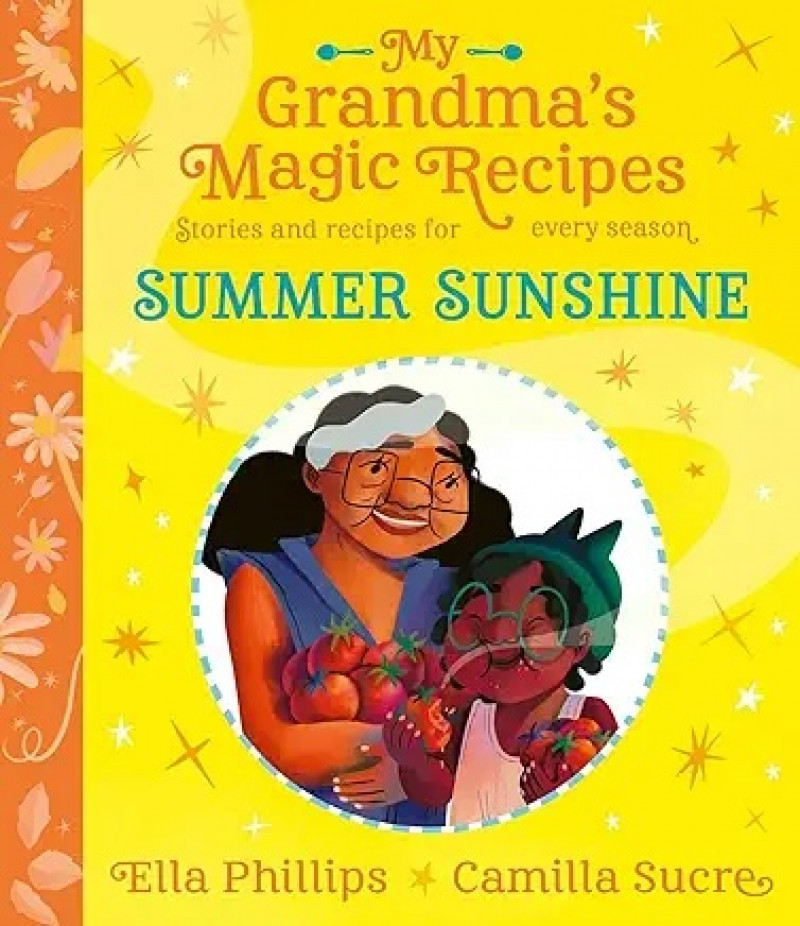
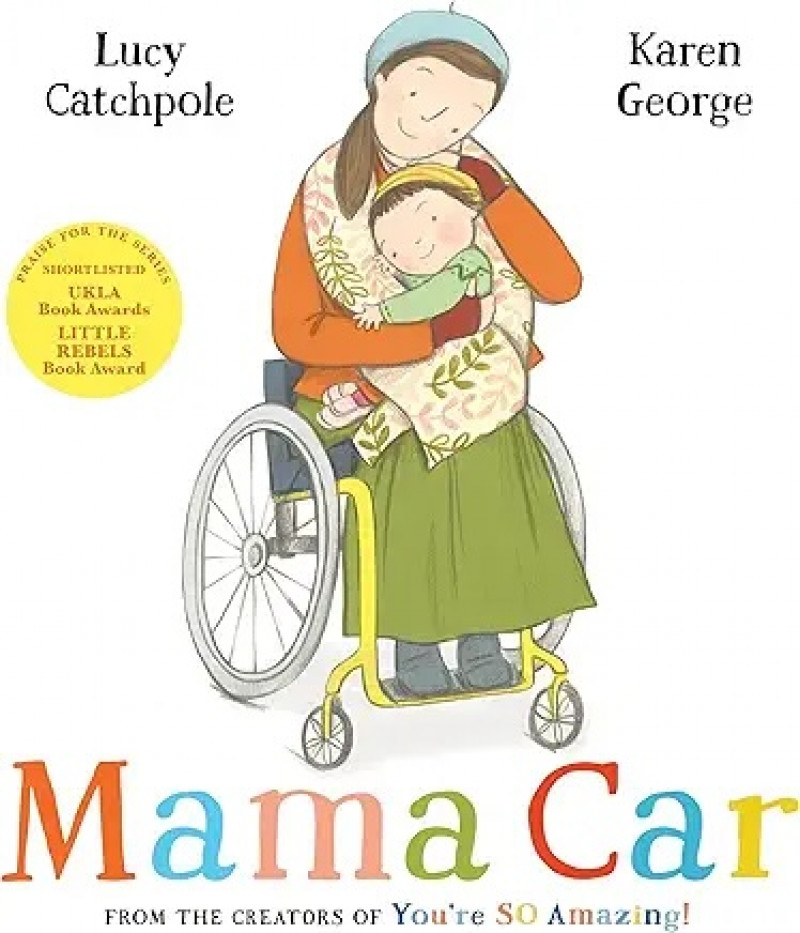
Mama Car by Lucy Catchpole and Karen George
(Faber & Faber; Main edition, 1st August 2024)
This new book from the duo who created ‘You’re SO Amazing’ along with James Catchpole - Lucy’s husband- and as a companion text to ‘What happened to YOU?’ (illustrated by Karen George and written by James) is a celebration of love and acceptance. As a wheelchair user, in her author’s note Lucy explores the idea that, ‘There are lots of disabled parents around and the world doesn’t always know what to make of us.’ She goes on to say that this isn’t always easy and that ‘Wheelchairs provoke strong feelings, not all of them positive’. The story is an utter delight: written from the perspective of a young child (Lucy’s eldest daughter!), we explore modes of transport that the little girl is familiar with: ‘I have a tricycle. I ride it FAST round corners. Daddy has a big car. And Mummy has a Mama car.’ The little girl is sometimes simply little and curls up on Mama’s lap as they ride the Mama Car. And sometimes she is ‘feeling big’ and hops down to lead the way, making sure there are no toys to get stuck in the wheels of the Mama Car. An important book for every school to have and would work especially well for Reception age children.
Paul the Peacock by Tilly Matthews
(Happy Yak, 8th August. 2024)
With echoes of a reverse ‘Rainbow Fish’, Paul, the proud peacock who flaunts his fabulousness at all times and who isn’t really very humble at all, learns a true lesson about humility and kindness. His friend Norris (the Loris - what else?!) is dependable and far too amenable: ‘His trusty friend Norris the loris makes sure that Paul is perfectly pampered… Every. Single. Day. After all, Paul couldn’t possibly risk injuring one of his precious feathers.’ We see dear Norris paddling Paul along the river in manner of a gondolier; winching Paul by pulley up to his ‘penthouse’ and responding to every desire and whim Paul has. Until, that is, the night of the storm where Norris - quite understandably- flounces. Trouble is, without Norris’ assistance, Paul’s feathers have been blown clean off… and so he sets off in search of his feathers, convinced that this will bring him happiness once more… Paul may indeed be perfect but goodness this book is too!
A hilarious read with a strong message at its core. Perfect for children in Key Stage 1.
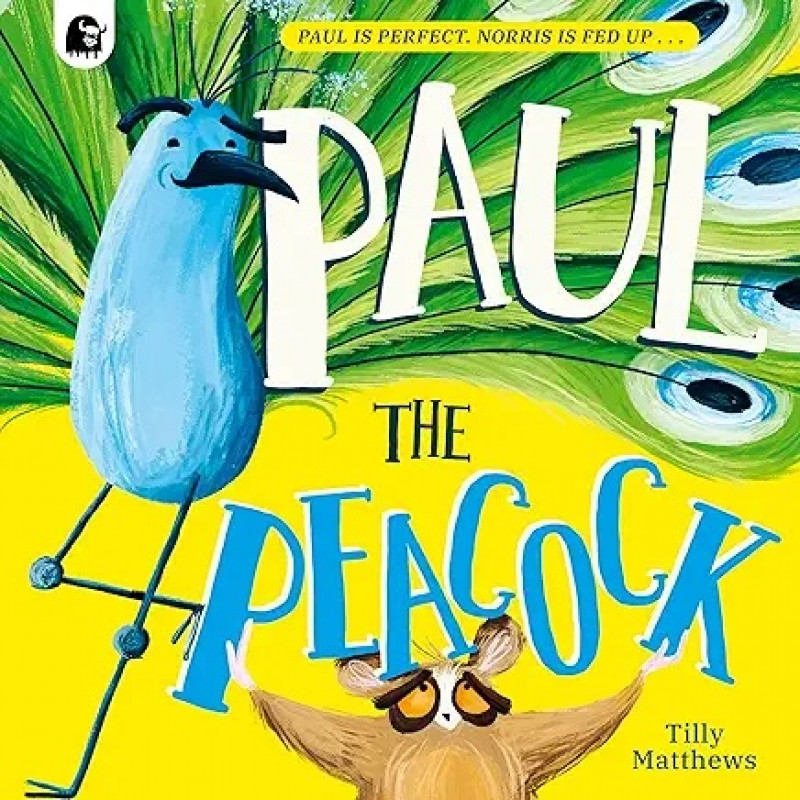
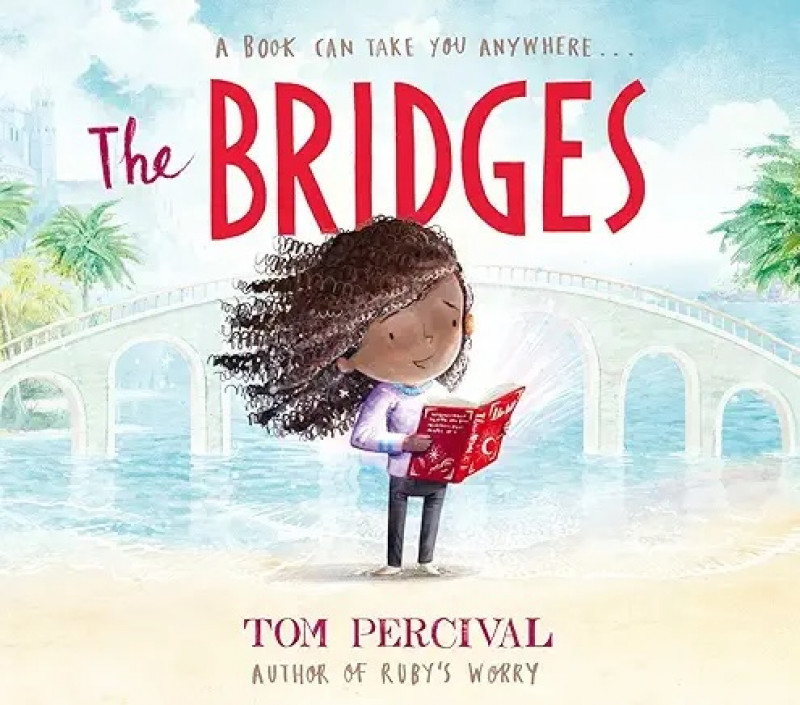
The Bridges by Tom Percival
(Simon & Schuster Children's UK, 29th August 2024)
This book is the epitome of all that a book can be but also it epitomises what we believe a book can do…We’ve always loved Tom Percival’s work and the way he’s able to articulate complex plot lines in such an accessible way. And he really knows children, writes children. This book is no exception: the subject is that of loneliness, which we know will be a real experience of many children, especially in the holidays: ‘Mia felt alone. Her parents were always very busy … so they rarely had the time to play with her’. As adults, we can see from the illustrations and use of colour - or lack of- that Mia’s parents likely have something very heavy weighing on their hearts and minds. Mia has a great imagination just it doesn’t always take her to anywhere all that nice until, one day, a ‘mysterious package’ arrives containing a book for her. Until now, she’d not owned a book … the stories within build bridges in her mind and show Mia connections she never knew could be made. The books she went on to read, and the ‘Brand new bridges’ that appeared ‘reaching out in all directions’ developed her confidence and helped her to build connections to other people… Another incredibly insightful and moving book from Tom Percival: a perfect salve to loneliness and a reminder of how we must keep fighting to get books into the hands of children who may not have any books to call their own. Perfect for children in Key Stage 1 and Year 3.
Delta and the Lost City by Anna Fargher
(Macmillan Children's Books, 4th July 2024)
This is such a clever and sophisticated novel. Set in Pompeii, following the great earthquake but prior to the devastating disaster that befalls the area when Vesuvius erupts, Delta the Wolfdog - a fiercely loyal pet - witnesses the most heinous of crimes. Having been blamed for the death of her master, Lucius, she goes on the run. But like so many animals seem to be able to do, Delta knows who is trustworthy and knows exactly where her loyalties lie. Lucius was a powerful but decent man and had decreed in his will that anyone enslaved to him were to be set free upon his death. Trouble is, Lucius’ will has disappeared in the confusion following his sudden death. What will cruel Marcus’ next move be? Will his heavily pregnant wife, Herminia, escape her shackles? What will become of all of them when Vesuvius erupts? And how will Delta save all that matters to her? This would be perfect as a whole class reader for children in Year 4 and up.

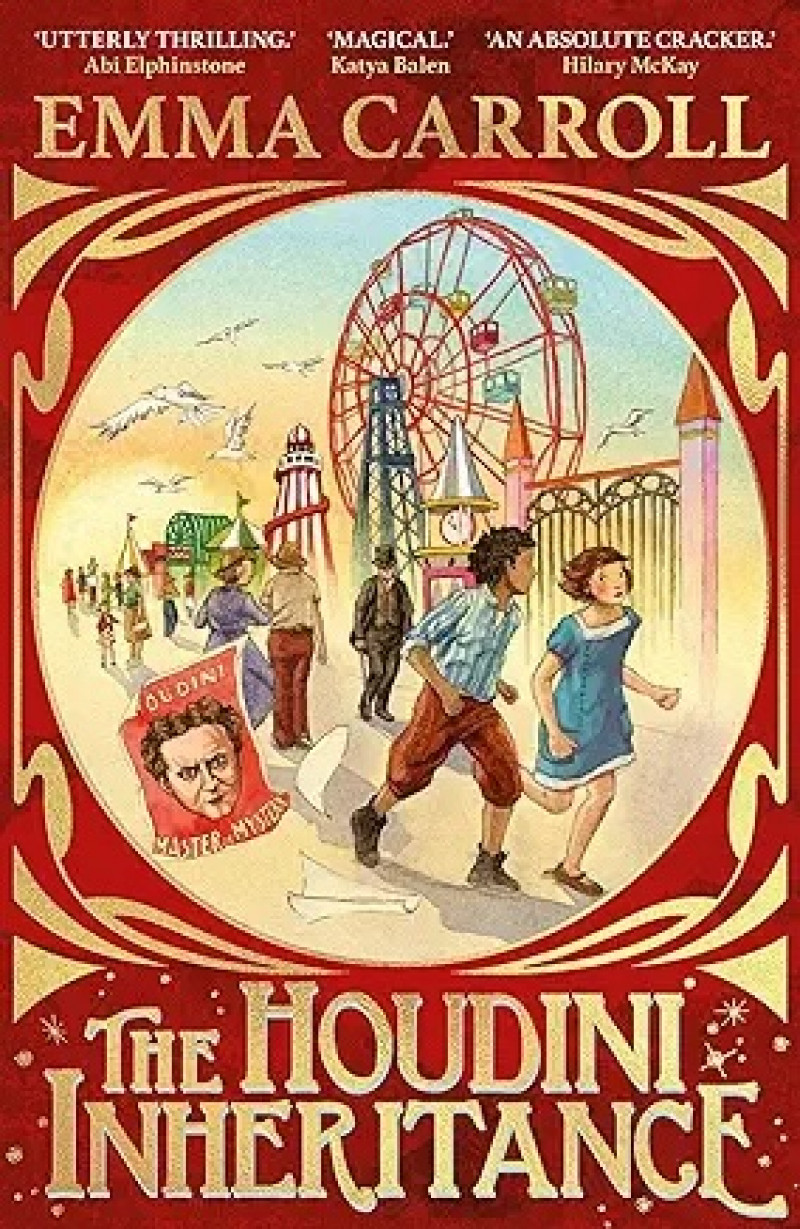
The Houdini Inheritance by Emma Carroll
(Faber & Faber, 4th July 2024)
What could be more perfect a summer read than a book set in a 1920’s seaside resort in Devon? Glory and her friend Dennis, left in the care of Glory’s older sister Effie and Dennis’ Gran, are on the brink of a miraculous adventure: they’ve already absconded to the seafront to watch the incredible Harry Houdini. Their mothers are in New York, working the summer season at world-famous Coney Island’s amusement parks: Glory’s mum tattooing and Dennis’ singing with greats such as Ma Rainey. But when the children manage to bag entry to Houdini’s evening show, there occurs the most intriguing of encounters. The plot thickens thereafter when a mysterious note is found, written on heavy, expensive paper. Could it possibly be in Hungarian, Houdini’s mother-tongue? What does it say and – more to the point – was does it mean? When the children venture to the library to talk to who is known locally as ‘the oracle’, Mrs O’Malley the librarian reveals that they are not the first people to ask about Houdini reference books that day…Both children are from richly diverse families and in that way Carroll has, the plot circles back to previous historical events such as World War 1 whilst also cleverly weaving in social history of the time. A perfect summer read for children in upper key stage 2.
At the Top of the World: The Greatest Mountains on Earth (and how to climb them) by Robin Jacobs and Ed J Brown
(Cicada, 13th June 2024)
The book takes us on an exciting expedition: the destination(s)? Mountains of all types, all over the world. The first section, ‘All About Mountains’ is the perfect introduction and includes a pre-emptive selection of ‘Some mountain terms.’ This enables the reader to then simply get started, even if the subject-matter is an unfamiliar one. There follows a section on mountain exploration through the ages; equipment and hazards and even a double-page spread on the essential skill of knot-tying. Then we meet the mountains themselves. There’s Everest with its history of conquest; the Sherpa people: a group indigenous to the eastern Himalayas and known for their skill and agility at guiding mountaineers. There’s the folklore of the yeti and a potted guide to scaling Everest itself. We then journey to mountains including: the Matterhorn which borders Italy and Switzerland; Ecuadorian Chimborazo with its four, glacier-covered peaks and Mount Fuji: the ‘iconic symbol of Japan’, a stratovolcano located on the island of Honshu. Each mountain’s title has been printed in styles and colours significant to the geographical location. This is non-fiction perfection and would suit children of all ages in Key Stage 2 and we can think of several adults who would enjoy this, too!

Posted in: Literature Review